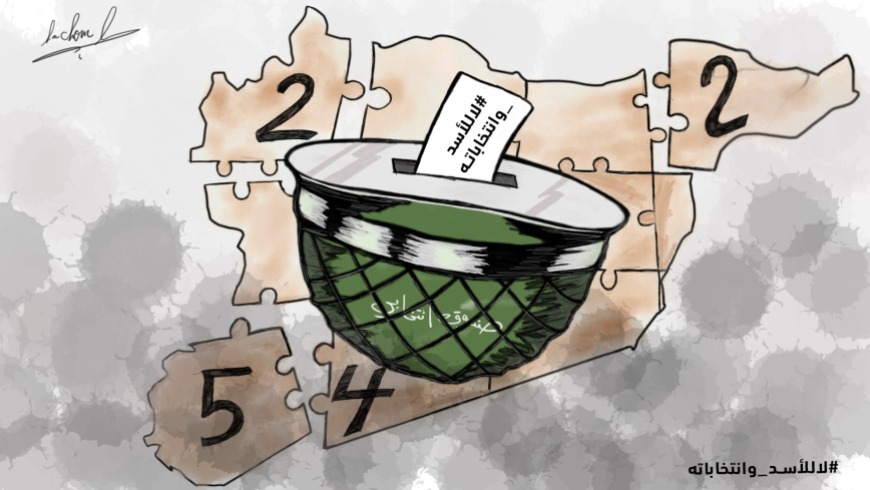Let us not forget that these regime elections are far from representing the plurality of the political scene of society and the real representation of the diverse components of the Syrian homeland, which is plural and diverse religiously and ethnically—essential elements of any democracy. They are also completely far from the concepts of equal citizenship. A homeland cannot be built without full equality among citizens.
It has become known that the Syrian regime evades the political solution in all its provisions, as it evades the continuation of the sessions of the Constitutional Committee and the formation of the transitional governing body that supervises the elections in the country.
The Syrian electoral law was—and still is—in need of a comprehensive change to ensure a good level of democracy, transparency, and balanced and real representation. The Syrian elections were—and still are—far from meeting the minimum international electoral standards, and they do not respect the treaties and agreements that Syria accepted as obligations. Therefore, the electoral process in Syria cannot be acceptable without extensive electoral reforms at the constitutional, legislative, legal, and administrative levels.
The Syrian regime is pressing forward with holding these elections, refusing to abide by the resolutions related to the Syrian issue, and clearly and flagrantly violating these resolutions, especially Resolution 2254. This resolution calls for elections as part of a political solution, supervised by a transitional governing body, and held in a safe and neutral environment where all Syrians, inside and outside Syria, can participate and be subject to international monitoring and supervision to ensure transparency and integrity.
It has become known that the Syrian regime evades the political solution in all its provisions. It evades the continuation of the sessions of the Constitutional Committee, which is supposed to lay new foundations for elections in the constitution, and it evades the formation of the transitional governing body that supervises elections at all levels. It refuses to amend election laws and party laws to guarantee a safe environment that allows free and democratic elections and refuses international monitoring and supervision of all types of elections, legislative and presidential. It continues to exclude millions of Syrians fleeing oppression from participating in voting.
It would have been prudent for the Syrian regime to reconsider and proceed with implementing UN resolutions 2118, 2245, and others, ending security prosecutions and resolving the issues of detainees and forcibly disappeared persons. It should return to the meetings of the Constitutional Committee, accept real political change, amend the election law to comply with the principles of the rule of law and the independence of the legislative authority, abolish the percentage of seats allocated to workers and farmers, adopt a different method to distribute seats to electoral districts, reduce the president’s authority in elections, and guarantee Syrians the right of voluntary, safe, and dignified return. This would allow them to participate in parliamentary and presidential elections and enable the United Nations to partner in the administration and monitoring of elections, forming a legislative and executive authority like any deliberative pluralistic democratic state.
Finally, we affirm that the current circumstances in Syria do not allow for the holding of free and genuine elections at any level. The current legal structure does not provide any guarantees for managing an independent and correct electoral process, and the security situation is unstable and does not allow these elections to be held. Media freedoms are absent, and the Fourth Estate is not allowed to expose fraud and violations or the interference of the security services and the Republican Palace in these elections. There is a complete absence of political pluralism and competition.
Moreover, the absence of the real and effective role of Syrian civil society in the electoral process leads us, within the framework of opening other baskets, to propose the principle of tripartite formation, which was adopted by the United Nations as the model of the Constitutional Committee. This model was built on three parties: the opposition, the regime, and civil society. We also propose opening the election basket.
This article was translated and edited by The Syrian Observer. The Syrian Observer has not verified the content of this story. Responsibility for the information and views set out in this article lies entirely with the author.


